Choosing an industrial soap begins with a keen analysis of
the facility’s needs. An assembly line or warehouse will have much different
industrial soap needs compared to a tool and die shop or heavy industrial
plant, says Bowers.
“We take a look at what the client is using and then we will look at what kind of soils, greases and paints they are trying to get off their hands,” says Bowers. “We will assess their needs, because there are specialty soaps developed for getting certain (substances) off hands and arms.”
For example Bowers’ company offers a soap with pumice that tends to work well in automotive shops, where thick greases and oils are present. In a different setting, such as a printing facility, Bowers would suggest walnut-based soaps that tend to work well at removing inks and paints.
A key to finding the right industrial soap is balancing its cleaning power and its harshness on the hands.
“You want something that is going to work effectively but is pleasant to use,” says Silverman.
Jim Sinn, an account manager at Dalco Enterprises, Inc. in New Brighton, Minnesota, has noticed demand for an industrial soap with a heavy fragrance that cleans “like a son of gun” but contains lotion and is, as a result, easy on the skin.
“That’s a tall order, because what they are cleaning off is oil and that is exactly what is in your hands that keeps them from being dry,” says Sinn. “When these guys get dry hands, they don’t like it any more than the nurse in the hospital does.”
Some manufacturers are adding lotion and Vitamin E to their industrial soap products, which will create a more pleasant hand-washing experience.
Facility managers and BSCs should not underestimate the importance of the soap’s fragrance.
“We take a look at what the client is using and then we will look at what kind of soils, greases and paints they are trying to get off their hands,” says Bowers. “We will assess their needs, because there are specialty soaps developed for getting certain (substances) off hands and arms.”
For example Bowers’ company offers a soap with pumice that tends to work well in automotive shops, where thick greases and oils are present. In a different setting, such as a printing facility, Bowers would suggest walnut-based soaps that tend to work well at removing inks and paints.
A key to finding the right industrial soap is balancing its cleaning power and its harshness on the hands.
“You want something that is going to work effectively but is pleasant to use,” says Silverman.
Jim Sinn, an account manager at Dalco Enterprises, Inc. in New Brighton, Minnesota, has noticed demand for an industrial soap with a heavy fragrance that cleans “like a son of gun” but contains lotion and is, as a result, easy on the skin.
“That’s a tall order, because what they are cleaning off is oil and that is exactly what is in your hands that keeps them from being dry,” says Sinn. “When these guys get dry hands, they don’t like it any more than the nurse in the hospital does.”
Some manufacturers are adding lotion and Vitamin E to their industrial soap products, which will create a more pleasant hand-washing experience.
Facility managers and BSCs should not underestimate the importance of the soap’s fragrance.
Building service contractors who need to purchase an
industrial soap should get workers who will be using the product involved early
in the decision-making process, says Brian Benson, a sales manager at Dawnchem,
a distributor in Willowick, Ohio.
Facility executives don’t want the complaints about the soap
after it has been installed. BSCs should ask their distributors for samples of
three or four different industrial soap products that workers can test during
their shifts. The trials should last for at least a few shifts. The industrial
sample should also be placed in the dispenser that will be actually used.
“You give [workers] a couple of 2-ounce bottles of soap and
they will be lost, thrown away or stolen,” says Benson. “A guy with greasy hands
is not going to want to grab a little, dainty 2-ounce bottle and try it out of
there. He’s going to want a dispenser, because they are really hard on these
dispensers as well.”
BSCs should also focus on the dispenser that will be used to
distribute the soap during a hand wash, says Bowers, who suggests that
dispensers should be wall-mounted and durable. Workers should be trained on how
to correctly use the dispenser and industrial soap product to reduce
overconsumption.
“We want to make it as accessible as possible, but, at the
same time, we have to secure the product for the client because if the product
is walking off or they are going through it too quickly, our product will not
be in there very long,” says Bowers, who warns that initial use will increase
with new dispensers because users will test the product on their own, but it
will begin to level off after three or four months.
Although cost is always a piece of the decision-making
puzzle, having to pay a higher price is typically is not an issue when it comes
to industrial soap.
“In a manufacturing plant, industrial soap is one item that
they are the most passionate about. They will actually spend more money on
that, because it’s a hot-button (product),” says Sinn. “If guys can’t get their
hands clean, they’re not happy.”
In addition to cleanliness, correct use of industrial soap
will create a safer work environment in heavy-manufacturing plants.
“If they are working with heavy equipment, they don’t want
their hands to be slippery, because, if they are slippery, they can drop something
or a piece of equipment could fall,” says Benson.
As BSCs look to grow or solidify their presence in the
industrial sector, they will need to be able to provide the right soap for the
market. An industrial soap that’s tough on dirt, but gentle on hands is just
what customers need.
“These are tough guys, but they like soaps that smell good,”
Industrial soaps can be effective without being harsh on the
hands. The scrubber particles in an industrial soap will help loosen the tough
soils, but they don't have to be sharp pumice rock. Smooth edge scrubbers like
walnut shell or cornmeal work just as well. The important aspect to look at is
the actual formulation of the product. Any industrial hand soap that uses
petroleum distillates will be harsh on the skin. Add to that sharp edge pumice
rock that will irritate the skin even more - the result is sore, irritated
hands. So, look at the formula (no petroleum distillates) and the scrubber,
(stay away form pumice) and together - you will have a high performing product
that employees will be happy to use













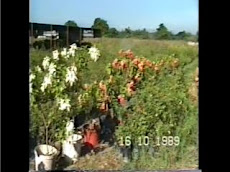














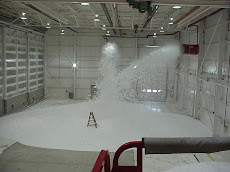
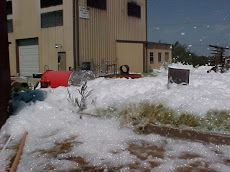

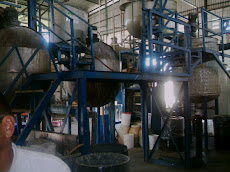








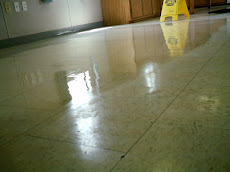








No hay comentarios:
Publicar un comentario